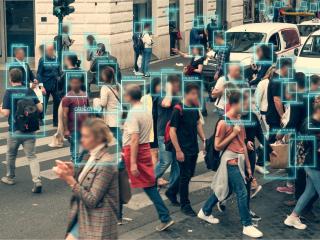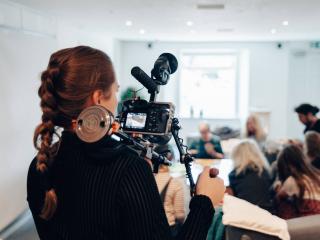Zero Hunger Lab, Chatbots and update on TAISIG
On Thursday, September 16th, 2021, the seventh edition of the TAISIG Talks took place. TAISIG is the Tilburg University Artificial Intelligence Special Interest Group: a research community committed to Artificial Intelligence (AI). Hein Fleuren, Christine Liebrecht and Emile Aarts shared their insights.
Prof. dr. Hein Fleuren, Zero Hunger Lab
Hunger is one of the world’s most challenging problems. The Zero Hunger Lab uses data science to help ensure global food and nutrition security, under the header ‘Bytes for Bites’. Cooperation partners include the United Nations (World Food Programme) and the Dutch Food Banks. In recent projects, Hein and his team work on developing methods and solutions to make relief aid as efficient and effective as possible (OPTIMUS project). Also, together with colleagues from TSHD, the Zero Hunger Lab developed the Child Growth Monitor, to detect malnutrition in children. Your expertise is needed to enhance the Zero Hunger Labs impact even more. Feel free to contact Hein if you are interested, especially if you have a background in machine learning, ethics, behavioural sciences and law.
dr. Christine Liebrecht on chatbots (TiU TSHD DCC)
Chatbot communication in the customer service industry. There is an increase in the use of this technology. The expectations on these kinds of technology can easily be too high: complex and/or highly emotional questions are usually too hard for a chatbot to respond to. FAQs on the contrary, are quite doable. The opportunities of a chatbot are that they are always available, they respond fast, they can manage many clients simultaneously and they can answer specific questions on specific topics. Performance however can be improved oftentimes, as is demonstrated in the examples of IKEA’s Anna and Microsoft’s Tay. Therefore, we also see some challenges related to the deployment of chatbots: they could misunderstand the customer’s language, they cannot fix mistakes, they can activate feelings of resistance, and they do not communicate in a humanlike way (yet). This is something Christine addresses in her project Smooth Operators. Development and effects of personalized conversational AI, where she focuses on the chatbot’s tone of voice.
Interview Marie Postma with Emile Aarts
What is TAISIG: Tilburg University AI Special Interest Group. It started in 2019 and its ambition is to combine all our efforts in the domain of AI. It is a scientific community of practice and the TAISIG Talks are a means to get acquainted with AI research undertaken at Tilburg University. There is a collaboration with Tilburg University students and PhD students, the laTAISIG Talkser via the AI Forward Forum and also through the TAISIG Talks. TAISIG not only is a community, it is also a movement. And therefore, TAISIG has developed a manifesto that contains TAISIG vision and core characteristics. In the heart of our profile are interdisciplinarity and ELSA: ethical, legal and societal aspects of AI. Tilburg University also fits very well in the national AI platform National AI Coalition (NLAIC). There are a number of instruments and funding developed by the NLAIC, a.o. an NWO call to set up ELSA labs. Tilburg University is very strongly involved, among them the Zero Hunger Lab that will be staged also in this edition of the TAISIG Talks.



